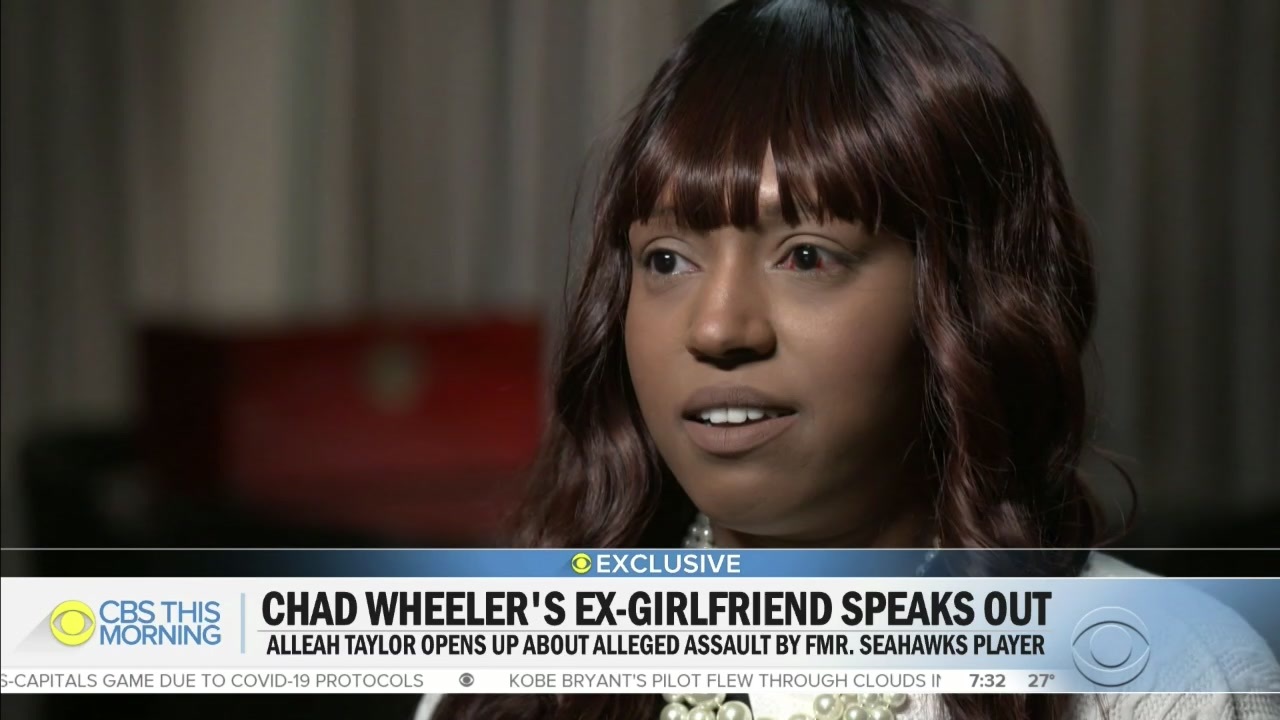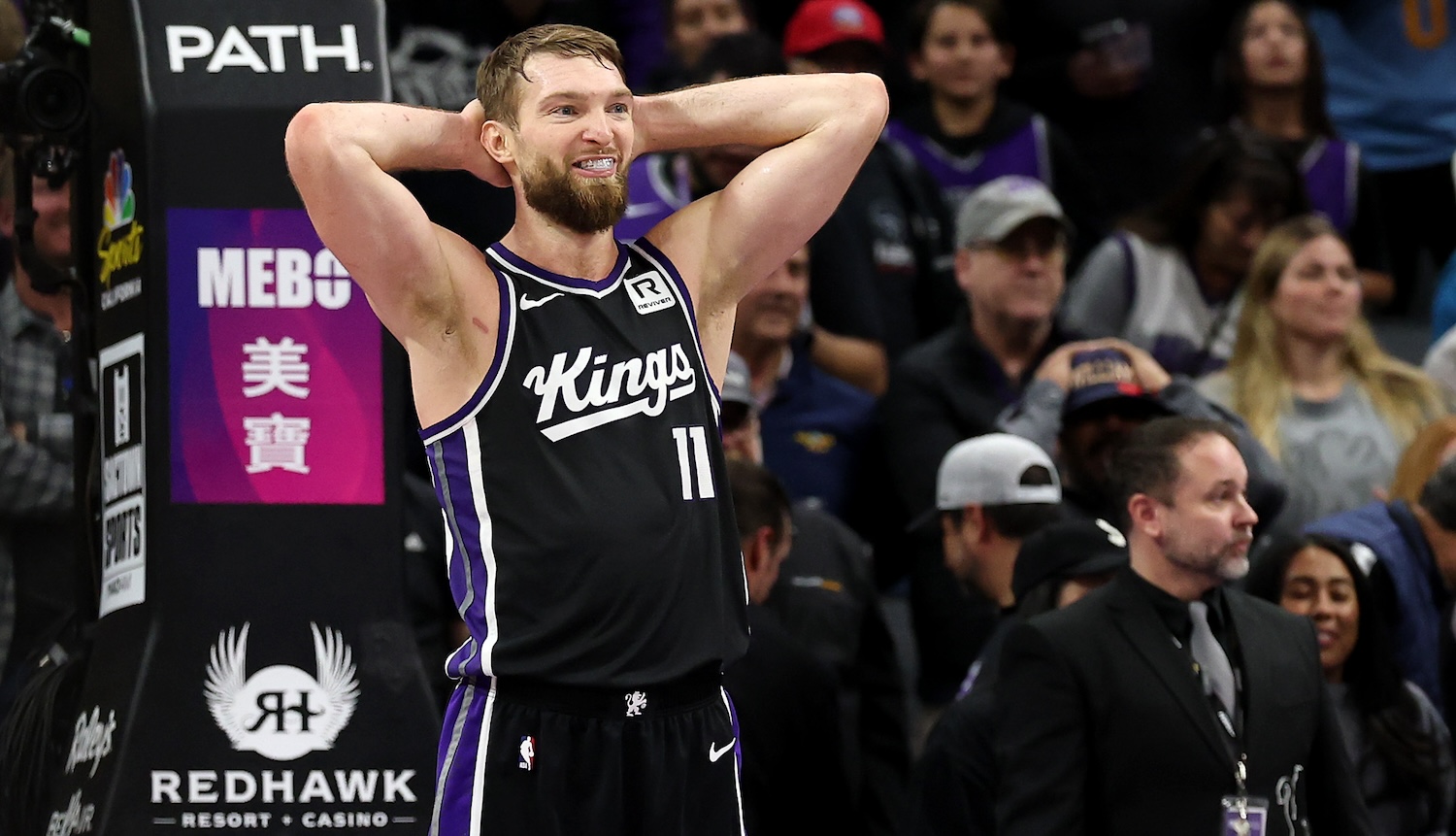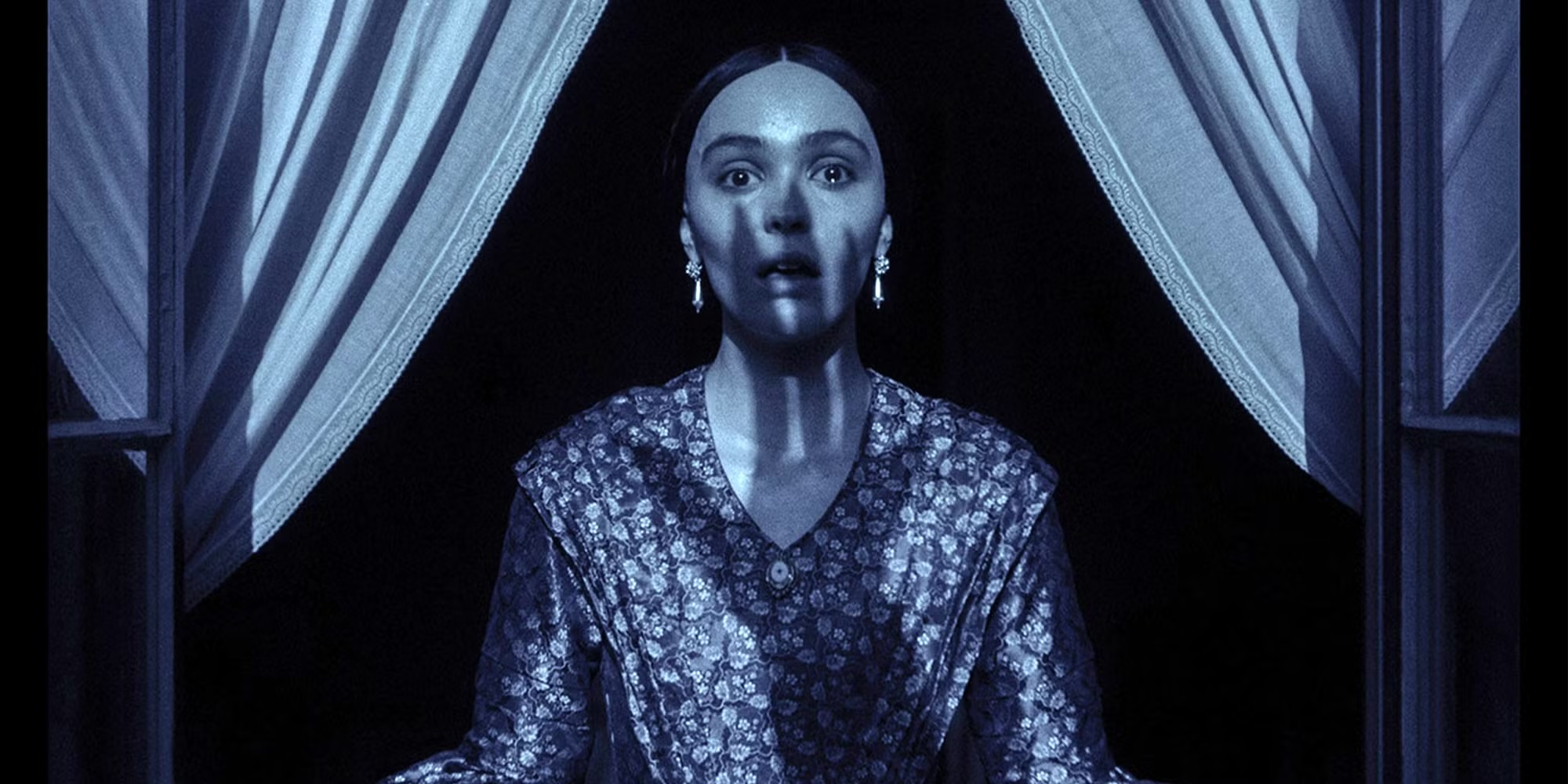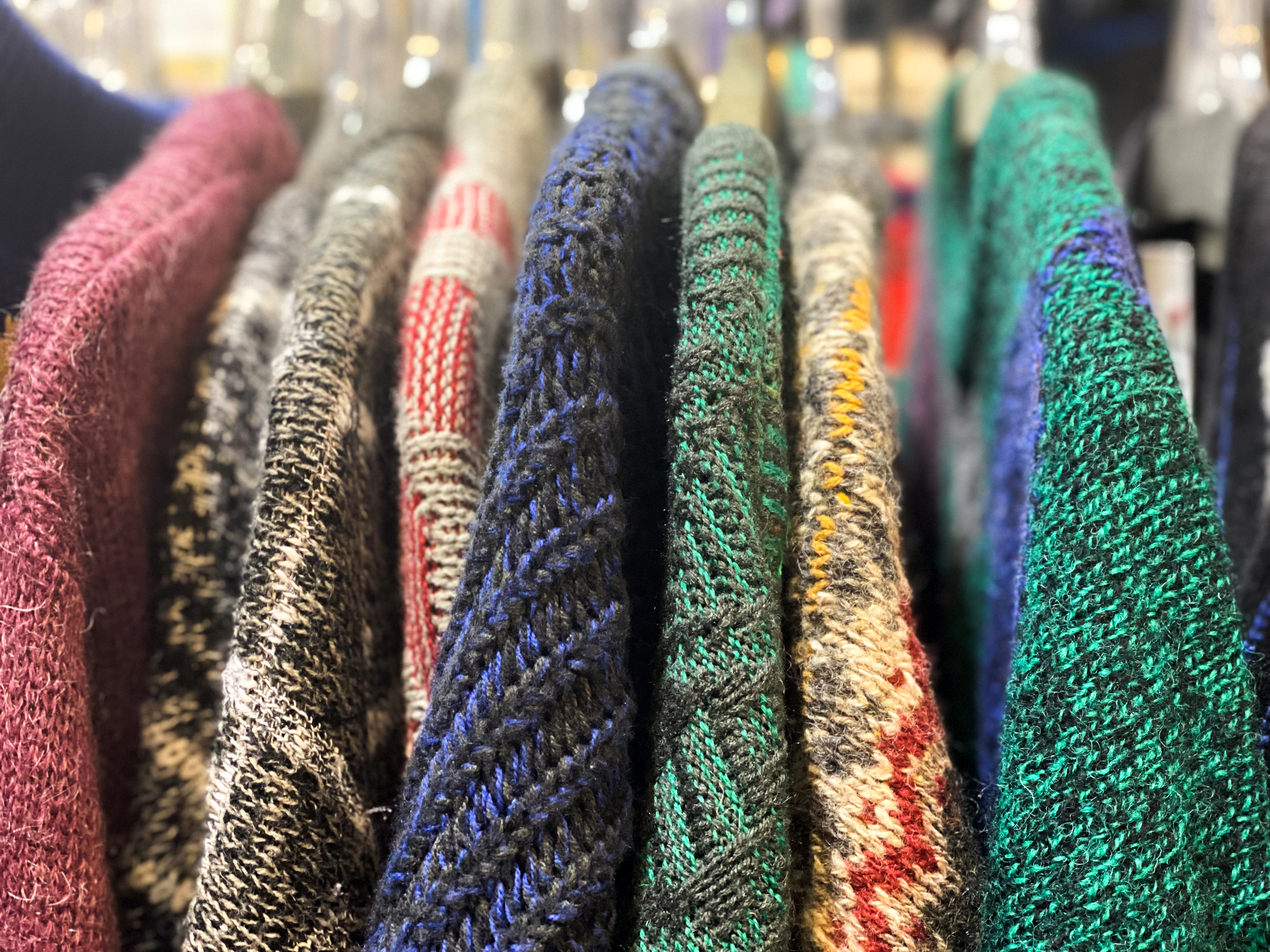On Wednesday, Alleah Taylor, the ex-girlfriend of former Seattle Seahawks lineman Chad Wheeler, spoke to Jericka Duncan on CBS This Morning about the night she says Wheeler attacked her. This story has been reported through police reports and statements given in court, but this was the 27-year-old's first sit-down interview. It opened with the photo that went viral last month of her face, battered and bloodied, then cut to Taylor more recently, sitting in a chair, her face healed, the photo's medical gown replaced by a white sweater and pearls, her left arm still visibly in a sling. She told Duncan that she has bolts and a steel plate in her arm now that "I'm gonna have forever."
Taylor talked about how happy their relationship had been, "like best friends, we did everything together" until it suddenly came apart on Jan. 22. How one day Wheeler shaved off the long hair he loved and, when she came home, she saw him "go downhill emotionally." When Wheeler asked her to bow down, Taylor said she refused. He grabbed her by the neck and began attacking her. The CBS story includes audio from when Taylor was able to escape to the bathroom. In it, she says, barely above a whisper, "Please help me now. I'm gonna die." There's another photo of her battered face, graphics to make clear how much smaller she is than Wheeler, and details about how many officers it took to subdue Wheeler. All of it is horrifying.
When she spoke with police, Taylor told officers that Wheeler has bipolar disorder, which Wheeler later confirmed in a statement. She also said that he had stopped taking his medication. In the interview, Duncan asked Taylor if she believed the attack was connected to "a mental health issue." Taylor answered, "To be honest, I don't know. He went and ate dinner after doing this to me and he didn't take the same approach with the cops that he did with me."
Wheeler has entered a not guilty plea to the three charges filed against him, felony first-degree assault, felony unlawful imprisonment domestic violence, and misdemeanor resisting arrest. CBS said Wheeler's lawyer declined to comment.
When the segment was done, the same thing happened that always happens on morning news shows. The reporter tosses to the people anchoring in the studio, and they pontificate on what we've all just seen. Everyone agrees that it is very important, and also very powerful, and that it was so brave that Taylor spoke, all of which is true. The hosts go over the graphic photos of Taylor's bloodied face, which went viral, and the massive height and weight differential between Wheeler and Taylor—figures and photos that I have no doubt will be used in court by the state to prove its case against Wheeler. The way our legal system is constructed, a prosecutor would be crazy to not use those awful photos, not repeat those numbers ad nauseam. Any prosecutor looking to secure a conviction would do the same. It's what they believe their job to be.
But I wish CBS had gone further and acknowledged just how big and complex a problem intimate-partner violence is. I am so thankful that Taylor told her story. But I also know her story is not the only way intimate-partner violence manifests. What about the people who are abused but don't have photos? What about the person who isn't half the size of their attacker? What about the person who is psychologically and emotionally abused, but never hit? It is well known now, or at least I hope it is, that intimate-partner violence happens on a continuum, and that the spectrum includes the spouse who isn't allowed to work, the boyfriend who's always told he should shut up because he's so stupid, the person being stalked by a coworker. These are scenarios that will not go viral, do not involve the NFL, and will quite possibly never go to court. They are all also intimate-partner violence, and also stories that should be told.
Taylor told her story because, Duncan said, she wants domestic violence survivors to know they are not alone. She joins women like Elissa Ennis, Melisa Reidy-Russell, and Alexis Blackburn, all of whom told their stories of intimate-partner abuse by their pro athlete partners on their own terms. Perhaps even more people will tell their stories too. They might not look exactly like Taylor's or Ennis's or Reidy-Russell's or Blackburn's. That's OK.
If you or someone you know needs help, the National Domestic Violence Hotline can be reached at 1-800-799-7233 or by clicking here.





